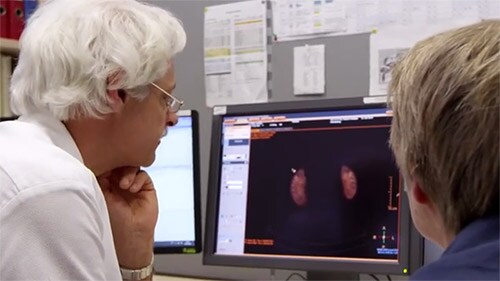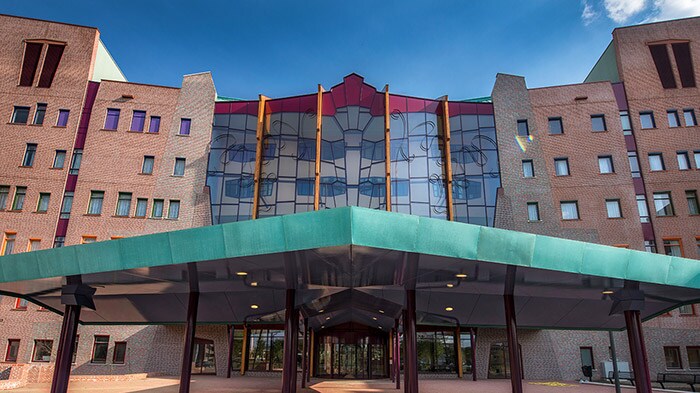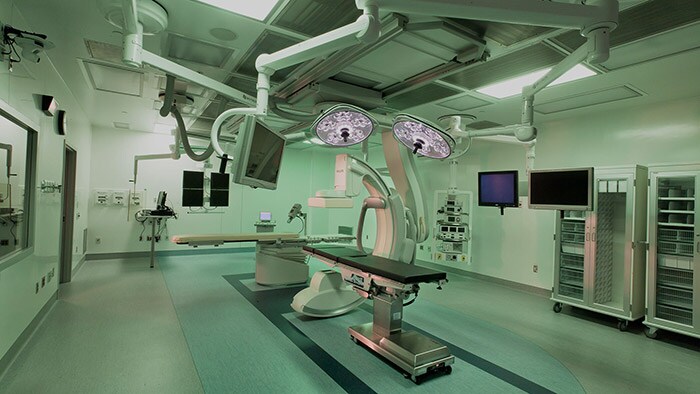Time-of-flight (TOF) PET/CT, offered by systems such as the Philips Ingenuity TF PET/CT, is mostly known for its excellent image quality with enhanced contrast and reduced noise compared to non-TOF, allowing physicians to diagnose lesions with much more confidence than with a conventional PET/CT. Philips Ingenuity TF users at SALK University Hospital, Salzburg, Austria explain how the system has increased department throughput and improved their patient experience. This material is not for distribution/use in the USA
Complete PET/CT solution helps improve workflow
The Philips Ingenuity TF PET/CT with Astonish TF, a unique suite of proprietary technology, boosts both image quality and workflow. Astonish TF provides enhanced contrast and sensitivity, reduced noise and increased spatial resolution, leading to improved lesion detectability. In addition, the Ingenuity PET/CT with Astonish TF features reduced acquisition time and a powerful image reconstruction algorithm that offers full-fidelity reconstruction in as fast as 30 seconds per bed.
Together with the other features of the Ingenuity TF PET/CT, this allows hospitals to scan three times as many patients as before.
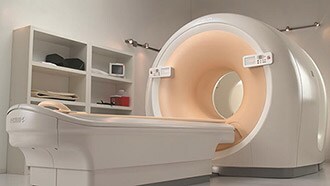
Philips Ingenuity TF PET/CT: excellent workflow for clinicians, high throughput for administrators.
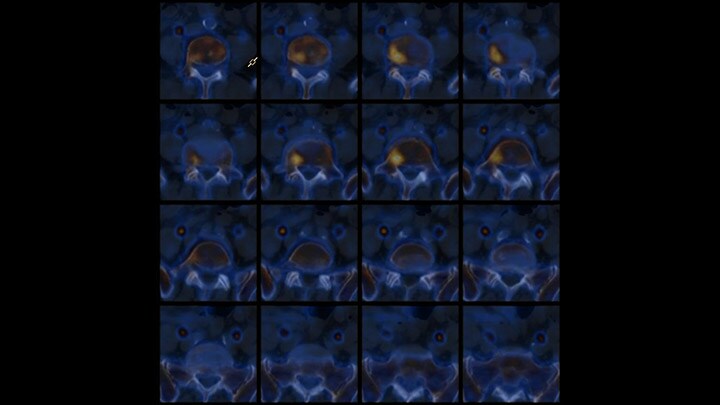
Ingenuity TF PET/CT: excellent image quality and more.
Bone Imaging. Images courtesy of University Imaging at Science Park, Rochester, USA
Excellent image quality without compromising on speed
Image quality can be a difficult word to define. Not so for Prof. Dr. Pirich at SALK University Hospital, Salzburg, Austria. “I define image quality as how well I can see small lesions,” he explains. “The ability to accomplish this was a major consideration in selecting our new system.” In today’s rapidly evolving world of imaging, it can seem as though improving image quality would necessarily mean longer scan and reconstruction times. The specialized hardware of the Philips Ingenuity TF PET/CT, however, offers excellent performance on both image quality and acquisition speed. “The acquisition time has almost halved,” says Gabriele Barth, head radiology technician for nuclear medicine at SALK University Hospital. “Earlier we used to have an average of 5 patients per day (8 hours), and now we have 15 to 18 patients per day.”
How SALK University Hospital has improved its PET/CT services
We see results fast – so we can act on them quickly
“Last Monday we had three Bowen’s disease cases along with 12 other patients,” observes Prof. Dr. Pirich. “Normally, you’d face some kind of trade-off: offer fewer procedures or manage fewer patients. Ingenuity TF PET/CT, however, allows me to perform so many different kinds of scans at a high frequency – so we didn’t have to devote all morning to just three exams.” The site handles a significant number of melanoma cases, which require whole-body scans. “We’re delighted that acquisition times are down to 75 seconds per bed,” he reports. Overall scan (acquisition and reconstruction) times have also been reduced by nearly half. “These time savings have a genuine impact on our clinical work. We see results fast – so we can act on them quickly.”
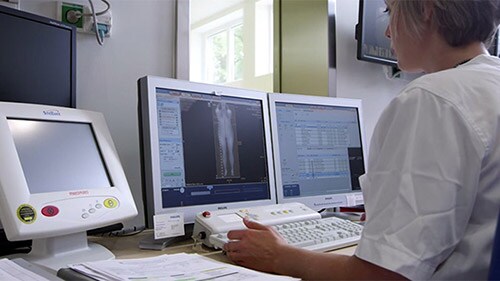
Gabriele Barth (SALK University Hospital, Salzburg, Austria) previewing images while her patient waits.
Cutting waiting times for patients
“Fast acquisitions and reconstructions are good for patients as well as our department,” says Barth. “With our previous system, patients had to wait in the scanner, with their arms over their heads, for nearly three-quarters of an hour. That is a lot to ask of someone who’s not doing well physically and possibly needs to visit us again in three to six months. While the PET images are being reconstructed, I already preview them after about 30 seconds to one minute. This is an excellent quality control tool to have while patients are still in the scanner.”
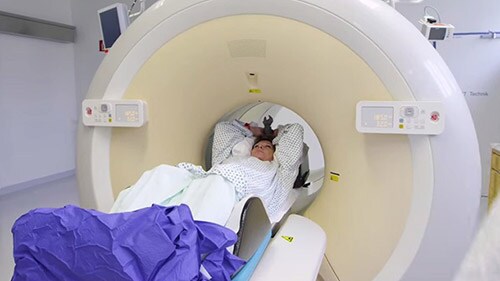
Ingenuity TF PET/CT helps reduce waiting time for patients.
